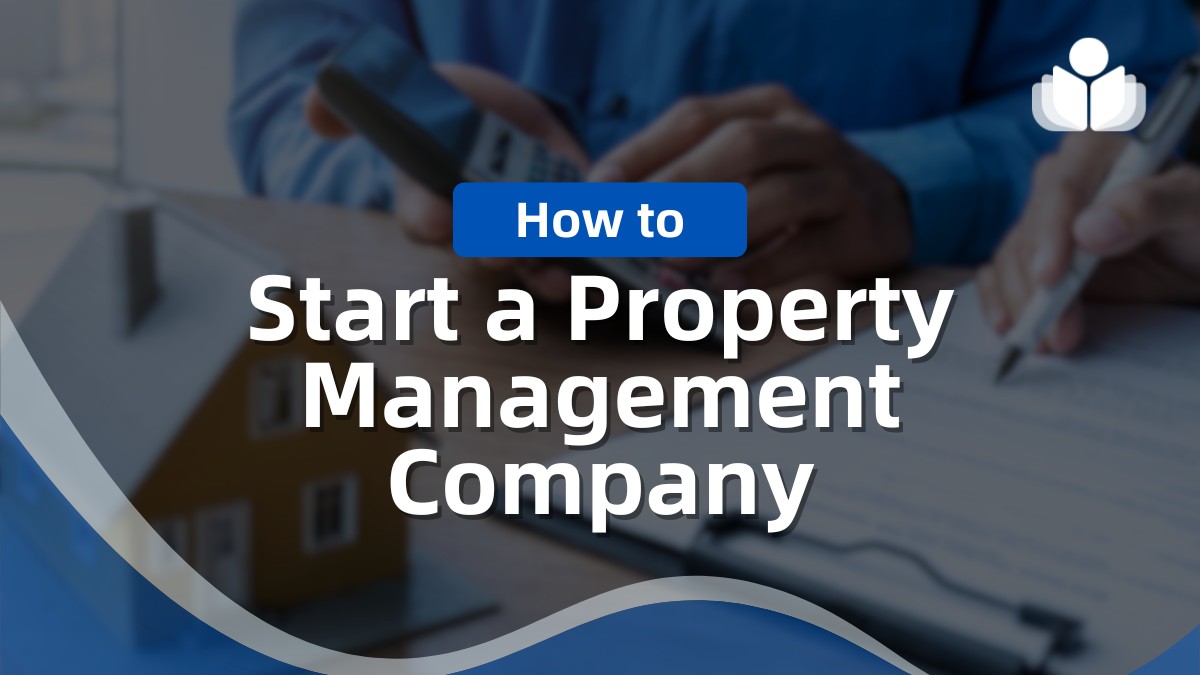Property management is crucial in real estate. It helps owners maintain and manage their assets while ensuring steady rental income. With the growing demand for rental properties, there’s significant potential for entrepreneurs to start a property management company.
This industry is expected to expand as more property owners seek professional services for tenant relations, maintenance, and financial management. This article provides a step-by-step guide on starting a property management company, covering everything from licensing requirements to acquiring clients and growing your business.
Understanding the Role of a Property Management Company
A property management company handles the day-to-day operations of rental properties, acting as the liaison between property owners and tenants. Responsibilities include managing tenant relations, overseeing property maintenance, collecting rent, and handling financial reporting. Property managers ensure properties remain profitable and well-maintained while adhering to legal obligations.
You can manage various property types, including residential properties (e.g., apartments and single-family homes), commercial properties (e.g., office buildings and retail spaces), and vacation rentals.
Starting a property management company offers benefits such as a stable income stream, the ability to scale your business, and the opportunity to develop long-term relationships with property owners and tenants. Property management can provide a lucrative business model with minimal initial investment and overhead costs.
Research and Planning
Before starting a property management company, conducting thorough market research is crucial to understand the local real estate landscape and identify your competition. Analyze your region’s rental demand, property types, and growth areas to determine where your services will be most needed.
Identify your target market, whether it’s managing single-family homes, multi-family complexes, or commercial properties. Tailor your offerings to meet the specific needs of these markets.
Writing a comprehensive business plan is essential. Your plan should include an overview of your company, the services you’ll offer (e.g., tenant screening, rent collection, property maintenance), and a detailed market analysis.
Include financial projections outlining expected income, expenses, and profitability to help you map your path to success. This strategic foundation will ensure you start your property management company on solid ground.
Legal Requirements and Licensing
When starting a property management company, it’s essential to register your business first. You’ll need to choose a business structure, such as a sole proprietorship, LLC, or corporation, each offering different legal protections and tax benefits. Ensure you obtain the necessary licenses, including a property management license, real estate broker’s license, or business license, depending on your state and local laws.
Familiarizing yourself with local, state, and federal property management regulations, such as tenant-landlord laws and fair housing guidelines, is critical. Proper insurance, like general liability insurance and Errors and Omissions (E&O) insurance, is essential to protect your business from potential legal claims or financial risks.
Building a Brand and Marketing Strategy
Creating a solid brand identity is essential for standing out in the property management industry. Start by developing a memorable company name, logo, and consistent branding materials that reflect professionalism and trustworthiness. Building a professional website is crucial. It should showcase your services, pricing, and expertise while making it easy for potential clients to contact you.
Develop a robust marketing strategy to attract property owners through various channels, including social media platforms, local SEO optimization, direct outreach, and attending networking events in the real estate community. Customer reviews and word-of-mouth referrals are invaluable for building trust and growing your business, so ensure you deliver excellent service to encourage positive feedback.
Setting Up Financial and Operational Systems
Setting up robust financial and operational systems is essential to efficiently running a property management company. Start by choosing accounting software to track each property’s income, expenses, and financial reports. Property management software can help streamline daily tasks such as rent collection, handling maintenance requests, and managing tenant communications, ensuring smooth operations.
Depending on the market and your service offerings, consider charging a percentage of rent or flat fees when pricing your services. It’s also crucial to stay on top of tax obligations, including filing quarterly taxes, understanding deductions, and maintaining proper bookkeeping for financial accuracy.
Building a Team
As your property management company grows, decide if hiring staff is necessary to manage operations efficiently. Key roles include leasing agents to handle tenant relations, administrative assistants to manage paperwork and communication, and maintenance personnel to handle repairs and upkeep. For specialized property repairs or larger projects, it’s important to hire licensed contractors who are qualified and insured.
When building your team, ensure that employees are well-trained in property management best practices, including tenant relations, rent collection, and handling maintenance requests. Staff should know local landlord-tenant laws and legal compliance to avoid potential liabilities. Ongoing training can help your team stay updated on industry trends and regulations, ensuring smooth operations and satisfied clients.
Acquiring Clients and Growing Your Portfolio
Attracting property owners requires a proactive approach. Start by marketing your services through targeted online ads, local SEO, and social media campaigns highlighting your expertise. Networking is critical—attend real estate investment meetings, connect with local landlords, and build relationships with agents to gain referrals.
Offer competitive and transparent pricing to gain the trust of potential clients and ensure they feel confident in your services. As you manage your first properties, focus on providing exceptional service, quick maintenance response times, thorough tenant screening, and clear communication to build a strong reputation and generate word-of-mouth referrals. Efficient management of initial properties will set the foundation for long-term growth.
Managing Day-to-Day Operations
Efficient day-to-day operations are vital to running a successful property management company. Start by handling tenant relations, including addressing tenant inquiries, ensuring timely rent collection, and enforcing lease agreements. Respond promptly to maintenance requests and coordinate repairs with trusted contractors to keep properties in good condition.
Regular property inspections are essential to ensure compliance with safety standards and prevent costly damages. Establish a system for scheduling and managing these inspections. Staying updated on landlord-tenant laws is crucial for maintaining legal compliance, especially when dealing with lease terminations, security deposit returns, and eviction processes.
Proper record-keeping and communication with tenants help avoid potential disputes and maintain a positive management experience for both property owners and tenants.
Scaling Your Business
To grow your property management company, consider expanding your client base by offering additional services such as HOA management, commercial property management, and vacation rental management. Building solid relationships with real estate agents, contractors, and local businesses can help generate referrals and open new opportunities.
Automating processes like rent collection, maintenance requests, and tenant communications using property management software will increase efficiency as you manage more properties. To sustain and grow your business successfully, focus on creating long-term strategies such as investing in marketing, enhancing customer service, and continuously adapting to industry trends.
Bottom Line
Starting a property management company involves vital steps such as obtaining licenses, creating a solid business plan, and building a strong brand. Each step is crucial for success, from setting up financial systems to marketing your services and attracting clients. Providing reliable services and managing properties efficiently will help grow your reputation and portfolio.
Building long-term relationships with property owners and tenants is essential for sustaining and expanding your business. Your property management company can thrive in a competitive market with careful planning and a commitment to excellence.
 Sections of this topic
Sections of this topic
















